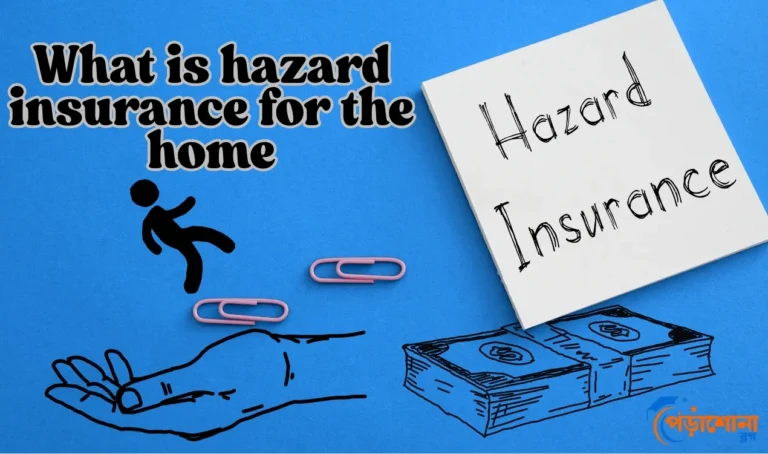Continuing Education Hours Required for Insurance Agents Explained. Looking to understand the Continuing Education Hours Required for Insurance Agents Explained? Discover the basics & stay compliant easily!

Introduction to Continuing Education Hours for Insurance Agents
Continuing education is crucial for insurance agents who want to maintain their licenses & stay current in the industry. Each state regulates the number of Continuing Education Hours Required for Insurance Agents Explained, reflecting ongoing changes in laws, best practices, & market trends. These educational requirements ensure that agents possess the necessary knowledge & skills to serve their clients effectively. Through crucial training, agents can refine their expertise & avoid potential pitfalls that arise in policy changes or insurance products. My experience with maintaining my own licensing has shown me firsthand the immense value of Continuing Education Hours in professional development. This blog post will delve into specifics such as state requirements, types of programs, & the process for obtaining these hours.
State-Specific Continuing Education Requirements
The requirements for Continuing Education Hours Required for Insurance Agents Explained can vary significantly from state to state. Each state’s insurance department sets its own regulations, defining how many hours must be completed within a specific renewal period. Typically, these hours can range from 10 to 30 annually, depending on the type of insurance license. This ongoing education may include topics such as ethics, fraud prevention, & updates to state laws affecting the insurance industry. Understanding individual state requirements is critical for compliance, & agents can usually consult their state’s insurance department website or local professional associations for guidelines.
| State | Required Hours |
|---|---|
| California | 24 hours every two years |
| Florida | 20 hours every two years |
| New York | 24 hours every two years |
| Texas | 30 hours every two years |
And another thing, certain states offer exemptions or variations depending on the specific insurance license, such as life, health, or property insurance. Agents should check for any concessions granted to seasoned agents or specific circumstances, such as attendance at approved industry conferences or seminars. Tracking these details carefully ensures agents remain compliant & ready for licensing renewal.
Various Types of Continuing Education Programs
Various programs exist to help insurance agents fulfill their Continuing Education Hours Required for Insurance Agents Explained. Options may include online courses, in-person seminars, & workshops, offering flexibility for agents busy with client commitments. Online courses are particularly favored for their convenience, allowing agents to learn at their pace & on their schedule.
- Online Courses: Flexible learning options that can be accessed anywhere.
- In-Person Seminars: Opportunities for networking & real-time engagement.
- Webinars: Interactive sessions that can be attended live or viewed later.
- Workshops: Hands-on learning experiences that can be directly applied to practice.
Regardless of the format, the courses typically cover vital topics related to insurance regulations, ethics, & anything new in the industry. Agents also often need to take specific training for the licenses they hold, such as certifications in life insurance, annuities, or long-term care insurance. Selecting an accredited program is critical to ensure the hours count toward licensing requirements.
The Benefits of Continuing Education for Insurance Agents
Engaging in Continuing Education Hours Required for Insurance Agents Explained is not merely about compliance; it also carries numerous benefits for personal & professional advancement. First & foremost, these educational sessions help agents stay informed about changes in the law & new products that can positively affect their clients. Knowledge gained through continuing education ensures agents are not offering outdated information, which could damage their reputation & trustworthiness.
“Education is an essential component of professional development in any field, especially in insurance where laws & products change often.” – Mrs. Arvilla Renner DDS
On top of that, continuing education fosters a sense of professionalism & confidence. With each completed course, agents enhance their skill set & are better prepared to handle client issues. This professional growth can translate into increased sales, better client relationships, & even more options for career advancement. Many agents find that investing in their education ultimately leads to higher earnings & greater job satisfaction.
Steps to Fulfill Continuing Education Requirements
To meet the Continuing Education Hours Required for Insurance Agents Explained, agents should follow a sequence of steps to simplify the process. The first step is to familiarize themselves with their state’s specific requirements & deadlines. Next, agents should research approved education providers to find accredited programs that align with their learning preferences. Checking for courses that cover the relevant topics can ensure agents gain the most benefit from their studies.
- Identify your licensing state’s CE requirements.
- Research & select accredited education providers.
- Enroll in courses, ensuring they cover required topics.
- Complete the courses before the renewal deadline.
- Keep records of completed hours for submission.
After completing the necessary hours, agents will typically be required to submit proof to their state’s insurance authority. This can often be done through online portals or via mail. It is crucial to keep documentation of completed education for personal records & future renewals. Not fulfilling these requirements can result in penalties or the inability to renew a license.
Maintaining Records of Continuing Education Hours
Keeping accurate records of Continuing Education Hours Required for Insurance Agents Explained is vital for future licensing renewals. Managing proof of completion can save agents a headache when renewal time arrives, ensuring that timely submissions are easily accessible. Agents should maintain a digital or physical filing system for their completed courses, including certificates of completion, transcripts, & any confirmation emails from providers.
| Record Type | Details |
|---|---|
| Certificates of Completion | Proof of completed courses showing hours earned. |
| Course Transcripts | Documenting course content & attendance. |
| Emails/Confirmations | Communications from providers confirming course completion. |
| Renewal Documents | Forms needed for submission to state authorities. |
Agents should create a routine of checking their records each renewal period, verifying that all documentation is accounted for & correctly filled out. This will ensure that they are prepared in advance, allowing for stress-free renewals & a focus on their clients instead.
Conclusion & Importance of Continuing Education Hours
In summary, understanding the Continuing Education Hours Required for Insurance Agents Explained is imperative for all insurance professionals. These educational requirements not only help maintain compliance with state laws but also enable agents to offer the best possible service to their clients. Ongoing education allows for professional growth, helping agents stay abreast of changing market trends & regulatory requirements. By ensuring they meet their continuing education obligations, insurance agents safeguard their careers & bolster their expertise while reinforcing public trust.
FAQs About Continuing Education Hours for Insurance Agents
What are the types of continuing education courses available for insurance agents?
Insurance agents can choose from various course formats, including online courses, in-person seminars, webinars, & workshops, allowing for different learning preferences & schedules.
How often do insurance agents need to complete continuing education?
The frequency of required Continuing Education Hours Required for Insurance Agents Explained varies by state, typically ranging from 10 to 30 hours every one to two years, depending on state regulations.
Can I recycle continuing education courses for different licensing renewals?
Most states do not allow the same continuing education course to be applied for multiple renewal periods. Agents should check with their specific state regulations to confirm any limits.
Are there any exemptions to continuing education requirements?
Some states may offer exemptions based on years of service or other criteria. Agents should consult their insurance department for detailed information regarding potential exemptions.
How do I submit proof of completed continuing education hours?
Proof of completed courses is typically submitted online through the state’s insurance department portal or directly to the authority, often including certificates or transcripts from completed courses.






